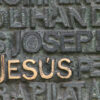
Today, as a Christian who has been involved in the examination of evidence for the past 25 years, I understand that atheists also have a burden of proof. All of us, in attempting to explain the world around us, move from a plethora of questions to a single responsibility:
There Are Many Questions
Atheists and theists both agree that the big questions of life are numerous. How did the universe come into existence? Why does the universe exhibit the ‘appearance’ of ‘fine tuning’? How did life originate? Why does biology exhibit the ‘appearance’ of ‘design’? How did human consciousness come into being? Where does ‘free will’ come from? Why are humans so contradictory in nature? Why do transcendent moral truths exist? Why do we believe human life to be precious? Why do pain, evil and injustice exist in our world? While atheists and theists have their own list of unanswered questions, we all agree that there are many important issues that need to be examined.
There Are Only Two Kinds of Answers
In the end, the answers to these questions can be divided into two simple categories: Answers from the perspective of philosophical naturalism (a view I held as an atheist), or answers that accept the existence of supernatural forces (a view I now hold as a theist). In other words, there are only two kinds of forces that could cause the universe and everything in it: impersonal forces (as available in a philosophically natural worldview), or personal forces (as available in a worldview that is open to the existence of a super/extra/supra-natural Being). Atheists maintain that everything in the universe (and all of life’s most important questions) can be explained from a purely naturalistic perspective (without the intervention of a supernatural, Divine Being). Theists argue that the evidence requires the intervention of a personal, intelligent, transcendent Creator.
There Is Only One Shared Responsibility
Both groups share a common burden of proof. If theists are going to posit God as the answer to some (or all) of the questions I’ve described, we are going to have to argue for the existence and activity of a personal, Divine Being. If atheists are going to argue that adequate answers exist without the need for God, they are at least going to have to provide sufficient impersonal, naturalistic explanations. In either case, both groups (if they are honest with themselves) will have to shoulder the burden of proving their case. The burden of proof is not limited to the theist; all of us need to be able to make a case for our choice of causes. One side defends supernaturalism, the other defends philosophical naturalism. One side argues for a personal, supernatural cause, the other for purely impersonal, naturalistic cause.
The nature of the questions (and the limited categories of potential answers) ought to motivate all of us to decide which of the two explanatory possibilities is most reasonable. While atheists are sometimes un-persuaded by the arguments for God’s existence, they are still woefully unable to provide coherent and adequate answers to the most important questions of life related to the cause of the universe, the appearance of design, the origin of life, the reality of human free will and the existence of transcendent moral truth. Theists aren’t the only ones who have to answer these questions. If naturalism is true, naturalists have their own unique burden of proof.

J. Warner Wallace is a Dateline featured Cold-Case Detective, Senior Fellow at the Colson Center for Christian Worldview, Adj. Professor of Christian Apologetics at Talbot School of Theology, Biola University, author of Cold-Case Christianity, God’s Crime Scene, and Forensic Faith, and creator of the Case Makers Academy for kids.
Subscribe to J. Warner’s Daily EmailSave
J. Warner Wallace is a Dateline featured cold-case homicide detective, popular national speaker and best-selling author. He continues to consult on cold-case investigations while serving as a Senior Fellow at the Colson Center for Christian Worldview. He is also an Adj. Professor of Christian Apologetics at Talbot School of Theology, Biola University, and a faculty member at Summit Ministries. He holds a BA in Design (from CSULB), an MA in Architecture (from UCLA), and an MA in Theological Studies (from Gateway Seminary).




































Pingback: The Extraordinary Nature of Murder and the Evidence for God | Cold Case Christianity
Pingback: The Big Thing About the Big Bang | Cold Case Christianity
Pingback: The Stuff We All Agree on When It Comes to Origins | Cold Case Christianity
Pingback: Three M’s That Naturalism Can’t Provide | Cold Case Christianity
Pingback: Mitä on havaittu? | evotuhat
Pingback: Why Would a Good God Allow Moral Evil? | Cold Case Christianity
Pingback: The Dangers of “Scientism” and an Over-Reliance on Science | Cold Case Christianity
Pingback: The Power of “Nice” and the Importance of “Good” | Cold Case Christianity
Pingback: How Can You Trust Christianity Is True If You Haven’t Examined All the Alternatives? - Cross Examined - Christian Apologetic Ministry | Frank Turek | Christian Apologetics | Christian Apologetics Speakers
Pingback: The Saturday Post(s) | A Pilgrim's Friend
Pingback: The Saturday Post(s) | Christians Anonymous
Pingback: Can You Trust Christianity is True If You Haven’t Examined the Alternatives? | Anchor Apologetics – Best Answers in Christianity
Pingback: Mitä on havaittu? | evotuhat
Pingback: The Stuff We All Agree on When It Comes to Origins | TLG Christian News
Pingback: Midweek Apologetics Roundup - Hope's Reason
Pingback: Are Theists the Only People Who Have the “Burden of Proof”?
Pingback: Who Shoulders the Burden of Proof: Atheists or Believers? - Nehemiah Reset
Pingback: Are Theists the Only People Who Have the “Burden of Proof”? - Nehemiah Reset
Pingback: The Big Thing About the Big Bang - The Poached Egg Christian Worldview and Apologetics Network